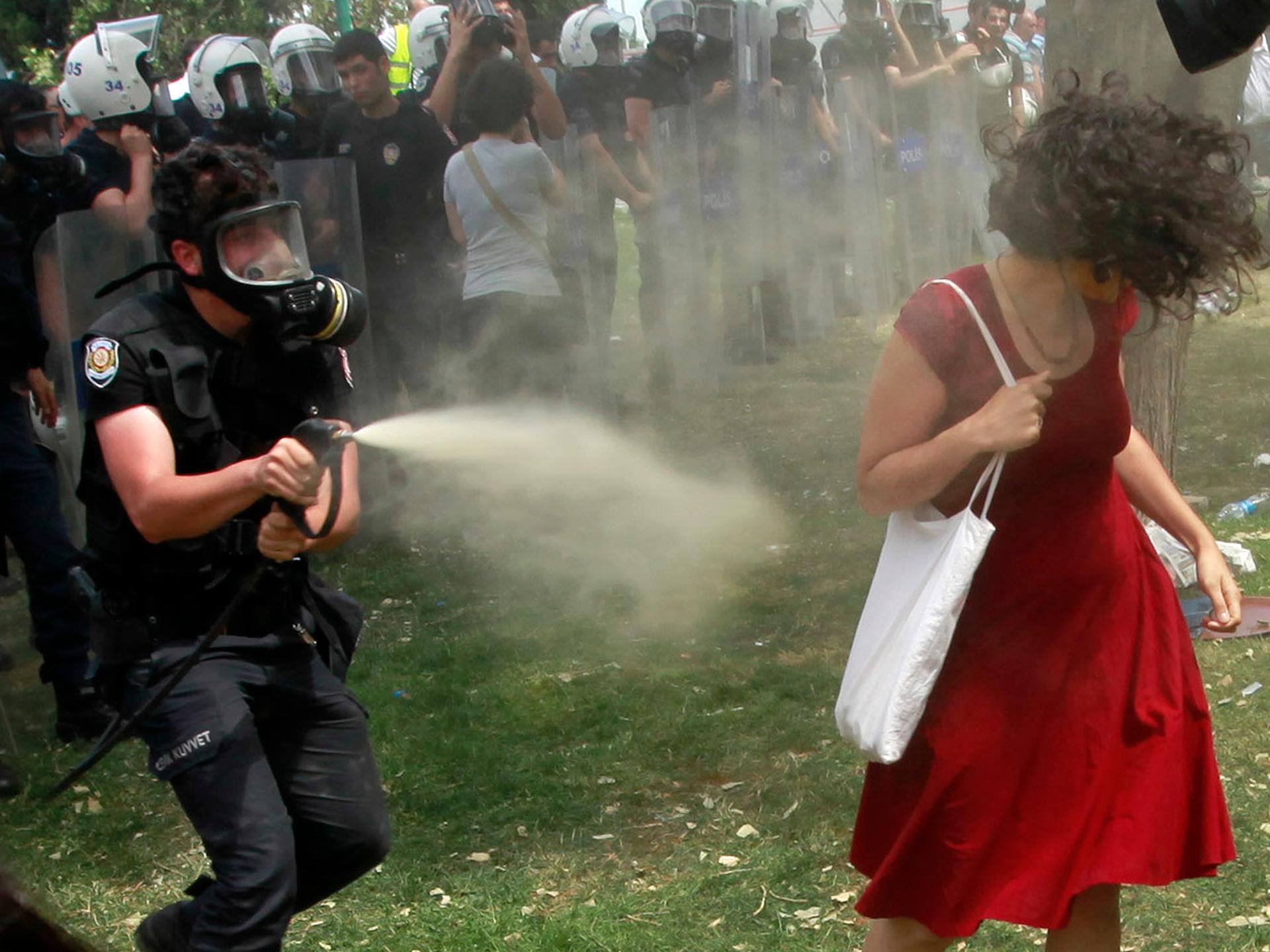You think American politics is a mess? Check out Turkey
A now-iconic picture of a Turkish riot policeman using tear gas against “the woman in red” at an anti-government demonstration in Taksim Square, in the heart of Istanbul.
Turkey often calls itself a model of a Muslim democracy in the Middle East. But some suggest it is proving to be a flawed model.
The country is a political mess right now. The Turkish government is beset by a corruption scandal, popular protests and charges that Prime Minister Recep Tayyip Erdogan and his ruling AK Party are becoming increasing authoritarian. For his part, Erdogan says those critics are part of a plot against him.
Elif Shafak, a Turkish author who divides her time between London and Istanbul, says Turkey these days is polarized almost beyond repair. And it makes the political squabbles in the US look relatively minor.
"When politics is polarized in America, it does not affect the system on every level because, at the end of the day, it is a well-established democracy," Shafak says. "So it doesn't affect the media, the judiciary, the institutions, and therefore individual citizens the way it affects people in Turkey."
Part of the problem is what Shafak calls the "baba complex." The baba complex is a "general attitude, not only in politics, but in almost every area of life in Turkey. We see the quest for the baba — baba is the patriarch, baba is a strong male personality — to save us," she says. "And I find that quite undemocratic, in its essence."
She says Turkey is a country that has been modernized and westernized from the top down, by the elites. But for a true democracy, she believes, there needs to be a real bottom up, grassroots kind of democracy — essentially, by the people, for the people.
Some in the West think that Islam is the problem hurting the country's democracy. Shafak says that's absolutely not the case.
"I do not agree that Islam is incompatible with western democracy … We have to focus on the system, the structure," she says. "For me, the main problem in Turkey is authoritarianism. And authoritarianism is not something that solely comes from the conservatives. Turkey is not a typical authoritarian regime, but clearly it is not a mature democracy either; it is somewhere in between."
She says the unfortunate reality is that politicians play on the supposed clash of civilizations between Turkey and Europe, and the West as a whole.
"Hardliners everywhere are breeding hardliners elsewhere," she says. "So in other words, anti-western sentiments throughout the Middle East are creating Islamophobia in Europe. Islamophobia in Europe or the Western world are creating more anti-Western sentiments elsewhere. These things go hand in hand.
"Hardliners, or fundamentalists of all religions, should be best friends because they see the world in exactly the same black and white terms," Shafak says.
She believes Turkey can pull out from its political chaos, "but the only path forward is a much more liberal, inclusive constitution."
Every day, reporters and producers at The World are hard at work bringing you human-centered news from across the globe. But we can’t do it without you. We need your support to ensure we can continue this work for another year.
Make a gift today, and you’ll help us unlock a matching gift of $67,000!
